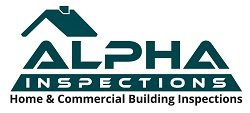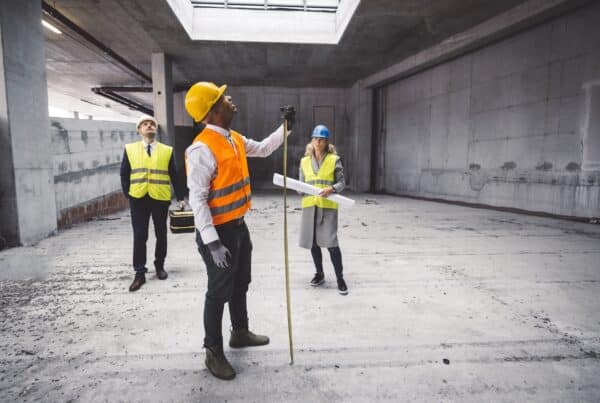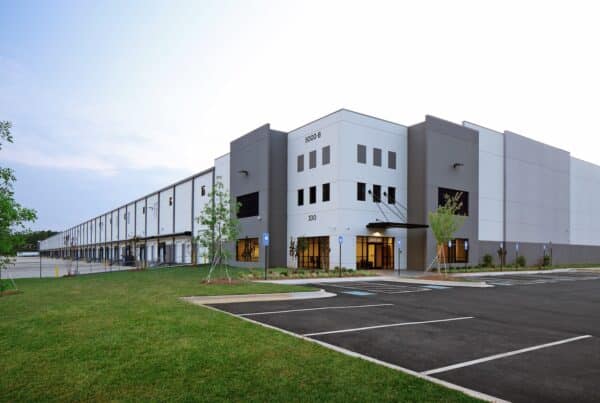
When you buy commercial property, there’s a lot on the line. Between making sure the property is suited to your needs and dodging expensive repairs, taking the right steps before you buy is so important—this guide is your holy grail.
Our goal is to walk you through key tips for a smooth buying process and protecting your investment long-term. If it’s your first rodeo or you just want a more confident approach this time around, these insights and tips from expert commercial property inspectors are for you.
What to Know Before You Buy a Commercial Property
Before you buy commercial property, understanding the bigger picture is essential.
This type of investment involves more than just finding the right location to be more about making sure the property aligns with your needs long-term.
Firstly, location matters (more than you think)— it can make or break a property’s value, at least for certain intents and purposes. Research zoning laws, traffic patterns, and nearby businesses to ensure the property suits your goals.
For example, a retail shop thrives in high-traffic areas, while an office space may benefit from quieter surroundings with accessible parking.
Building codes and legal requirements are non-negotiable. Outdated wiring or missing safety features, like fire sprinklers, could mean costly upgrades to meet current codes. Be prepared to work with experts to assess compliance, too.
Know the property’s history to get clues about potential problems. Were there major renovations? Have there been tenant complaints about leaks, mold, or other issues?
Finally, the purchase price is just the beginning. Budget for ongoing maintenance, insurance, utilities, and any needed upgrades to keep the property in top shape.

Why Inspections Are Essential
Buying commercial property without an inspection is a gamble you don’t want to take. Even properties that seem perfect can hide major problems that only a professional can uncover.
Inspections give you the full story so you can make informed decisions and avoid regrets.
- Discover what’s hidden: From structural cracks to outdated systems, inspections reveal issues that aren’t obvious during a walkthrough.
- Strengthen your negotiating power: Inspections provide leverage. If problems come up, you can negotiate repairs, lower the price, or even walk away if the risks are too high.
- Plan for future upkeep: Knowing the property’s condition (like a roof nearing the end of its lifetime) upfront helps you budget for maintenance and avoid surprise costs.
Frequently-Found Commerical Property Defects
Even the most appealing commercial property can come with hidden problems. A professional inspection brings these issues to light, helping you avoid costly surprises down the road.
Here are some of the most common problems uncovered during commercial property inspections:
- Cracks in the foundation, sagging floors, or uneven walls are more than just cosmetic issues—they can signal significant structural problems.
- A roof that hasn’t been maintained can leak or develop drainage issues, leading to water damage or mold. Missing shingles, worn materials, and other signs of deterioration could require immediate attention.
- Outdated or faulty wiring is not only a fire risk but also a potential drain on your budget. Inspectors look for overloaded circuits, old panels, or unsafe installations that need upgrading to meet modern codes.
- When it comes to plumbing, inspectors often find leaks, slow drainage, or signs of hidden water damage during an inspection.
- Finally, hazards like missing fire extinguishers, non-functioning sprinklers, or a lack of accessible features for people with disabilities can result in fines or additional expenses.
Insider Tips and Pre-Purchase Questions
1) Prioritize a timeline for inspections and negotiations: Start inspections early to allow time for follow-ups, obtaining repair estimates, or negotiating terms with the seller. Rushing through this process can lead to missed details or insufficient leverage during negotiations.
2) Request records for past repairs and maintenance: Ask the seller for documentation of major repairs or routine maintenance. This helps you gauge how well the property has been cared for and whether any neglected systems might need immediate attention.
3) Budget for immediate and future improvements: Even well-maintained properties often need adjustments to suit your business. Build a budget for necessary upgrades, such as installing specialized equipment or improving accessibility features, so you’re not caught off guard.
4) Check for shared property agreements: Confirm whether the property has shared spaces or utilities, like parking lots or HVAC systems, with neighboring businesses. Understanding shared responsibilities and potential costs is critical for avoiding conflicts later.
5) Investigate local market trends: Beyond zoning, consider whether the surrounding area is growing or declining. A rising market could increase the property’s value over time, while a declining one might require additional research into long-term risks.
Also, asking the right questions upfront can save you time, money, and frustration. Getting these answers will help you uncover critical details about the property and avoid unpleasant surprises after closing the deal:
- Are there any environmental risks, such as mold, asbestos, or lead paint?
- What repairs or maintenance have been completed recently, and were they professionally done?
- Is the property currently up to code for its intended use, or will upgrades be required?
- Are there any ongoing maintenance issues that could become expensive down the road?
- What’s included in the sale—fixtures, equipment, or warranties for major systems?

Other Recommended Maintenance After Buying
Once you’ve purchased your commercial property, staying proactive with maintenance is key to protecting your investment. Regular care (like the suggestions below) ensures the property remains functional, safe, and valuable.
- Schedule routine inspections for critical systems like HVAC, plumbing, and electrical. These systems can be costly to repair if small issues go unnoticed.
- Conduct roof inspections regularly, especially after severe weather, to catch leaks or damage early.
- Test fire safety equipment, including extinguishers, alarms, and sprinklers, to ensure compliance with safety regulations.
- Keep up with pest control measures to prevent infestations that can lead to structural damage or health hazards.
- Set up a long-term maintenance plan for shared spaces, like parking lots or common areas, if applicable.
When to Call a Professional
Certain aspects of commercial property ownership require professional expertise. Hiring the right professionals at the right time can save you money and ensure your property remains safe and compliant:
- Before closing the deal: A licensed property inspector should be your first call. They’ll uncover hidden issues, like structural damage or outdated systems, giving you the information you need to negotiate or make a well-informed decision.
- After purchasing: Bring in HVAC, plumbing, and electrical specialists for routine system inspections and maintenance. These systems are complex and often require an expert eye to identify potential problems.
- For compliance and safety: If fire safety equipment or accessibility features are out of date, work with licensed contractors to bring your property up to code. Non-compliance can lead to fines or legal issues.
Conclusion
Commercial property is a significant investment, but with the right knowledge and preparation, you can buy confidently. From prioritizing thorough inspections to asking the right questions and planning for long-term maintenance, these steps will help you make informed decisions and avoid costly surprises.
When you’re ready to take the next step, contact Alpha Building Inspections for an experienced team that specializes in comprehensive commercial property inspections in New Hampshire, Massachusetts, & Maine.


